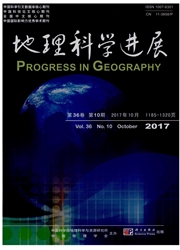

 中文摘要:
中文摘要:
在国际学术前沿土地变化科学的概念框架下,耕地非农化及其调控机制研究成为核心问题之一。研究中国快速城市化地区耕地非农化的驱动力及其调控机制,不仅是现实的迫切需求,也可在国际相关学术领域做出独特贡献。以北京为案例进行研究发现:1996-2004年北京土地利用变化中.大多数地类转换都与耕地直接有关,耕地流失是北京土地利用变化的核心问题;城镇扩展主要占用耕地.且耕地生产力高的平原地区因建设占用而流失的耕地量大;远郊山区耕地被建设占用的压力相对较小.但被生态用地占用的压力相对较大;人口增长、经济发展、政府行为与决策是北京等经济快速发展地区耕地流失的重要驱动因素.解决途径关键在于寻求耕地保护与耕地非农利用之间的平衡点、积极发挥土地管理政策的调控作用。
 英文摘要:
英文摘要:
Study on farmland non-agriculturalization and its control mechanisms is becoming an important issue in the framework of LCS ( Land Change Science), a new developing conception by IGBP. LCS stresses not only research on LUCC itself but also other relevant social-economic problems and pays much attention to high-speed change areas all over the world. China, a fast developing country, is facing many land use problems brought by fast economic growth, urbanization and industrialization with fast farmland losing as a core. Taking the capital of China, Beijing, as a case, the temporal-spatial processes of farmland conversion and its control mechanisms are discussed. It is found that (1)Farmland losing is the main character of land use in Beijing from 1996 to 2004; (2)Among various factors threatening the sustainability of farmland, the most outstanding and the most serious one is the occupation on farmland for urban development;(3)The lost farmland is mostly those high quality land in the plain area; and (4)Farmland losing is driven by population increase, economic growth, some local governments' acts for short-term benefits from farmland conversion and so on. In order to moderate the conflicts between farmland conservation and urban development in Beijing and other fast developing districts in China, the authors claim that the following points should be emphasized in land management:(1 )Importance should be especially placed on the quality of farmland; (2)Policies on farmland conservation, such as "keeping quantity balance", should be reviewed; and (3) It is necessary to make appropriate control mechanisms for farmland conservation, including: to provide a reasonable threshold of farmland conservation, to establish appropriate legislation, institutions and mechanisms, and to avoid illegal occupation on farmland for urban development, etc.
 同期刊论文项目
同期刊论文项目
 同项目期刊论文
同项目期刊论文
 期刊信息
期刊信息
